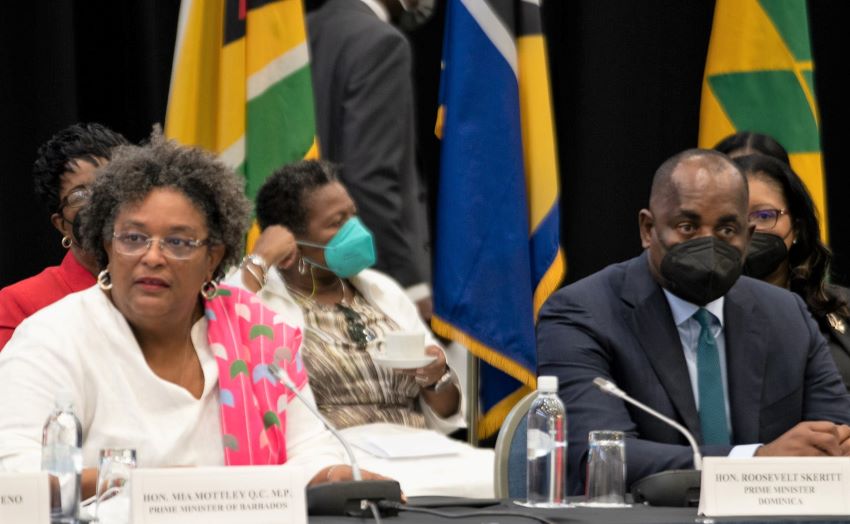
Caribbean countries are “unflinching” in their support for international efforts to stop crime and terrorism, as well as the financing of them.
Prime Minister Mia Amor Mottley stressed this point today, as she addressed the opening of the Caribbean Financial Access Roundtable, at the Lloyd Erskine Sandiford Centre. This high-level historic meeting was attended by CARICOM Heads of State and Heads of Government, and a US Congressional Delegation, led by US Congresswoman Maxine Walters.
Ms. Mottley told the meeting: “We are unflinching in our support for efforts internationally to stop terrorism, to stop crime, [and] to stop the financing of both of them. And that has made us unpopular among those who believe that money laundering and know-your-customer rules are backward and repressive.
“But the current régime, we believe, of anti-money laundering and countering financing of terrorism is so transparently flawed, that it is likely to end up being counterproductive, inadvertently…supporting crime and the sponsorship of financing for crime.”
The Prime Minister underscored the importance of today’s talks which included discussions on de-risking and correspondent banking, saying they had started in 2019. She proffered the view that a greater investigation into this matter was required.
“It may well be too, Madam Chair, that you may well even feel that it is necessary to have Congressional hearings on these matters. And I can assure you that if you do go in that direction, that all of us here would be prepared to participate, as well as other representatives in the region, because this strikes at the very heart of our ability to keep our countries and our economies safe.
“The solution to this conundrum for small developing countries is that the international process of fighting money laundering be more focussed on money laundering itself. An example of this would be for us to demand that no country can be placed on anti-money laundering sanctions’ lists, unless there is also actual evidence of the material money laundering,” she suggested.
Ms. Mottley argued that to simply sanction a country on the basis of a list because officials wanted them to do better, would be to have a disproportionate consequence on the country, without evidence of there being money laundering.
She noted that the countries which were routinely on the anti-money laundering lists had very little international finances.
“The rich countries develop and drive the lists. Those countries do not appear on the lists and criminals can see and follow who do not appear on the list. And it doesn’t take a Solomon to know which and where is the path of easiest resistance,” she said.
The Prime Minister listed a number of countries where money laundering transactions were routed, yet, she added, they were no reports of them being sanctioned or facing enhanced due diligence. She stressed, however, that the sanctioned countries did not have the capacity to impact international finance.
